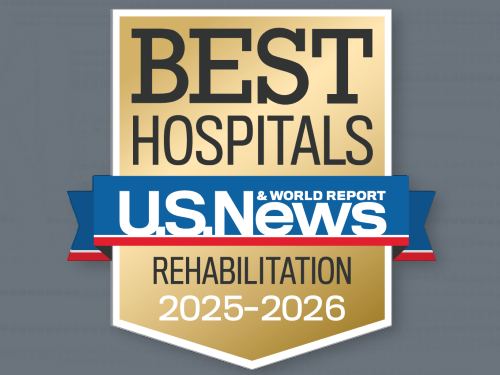After a life-altering injury or illness, you may feel worried and overwhelmed about the road ahead. At TIRR Memorial Hermann, we are here to provide relevant and valuable information so you can learn more about what to expect during your path to recovery. Our goal is to help you find independence and a new normal through treatment, rehabilitation and education.
Patients, as well as their family members and caregivers, have questions about the effects of injury and expectations for the future. As you navigate both physical and emotional recovery, we want you to know that many resources are available to help you find ways to live a functional, fulfilling life.
The Patient Education Resources page is a centralized location to learn about leading-edge medical research and to discover stories of other patients who have been through similar situations.
The information presented on this page is educational and not intended as medical advice or the practice of medicine. Specific aspects of your outcomes and care should be addressed and answered after consultation with your physician.
Spinal Cord Injury (SCI) Resources
These educational resources can supplement your physician’s guidance as part of your rehabilitation and long-term health maintenance plan.
Disorders of Consciousness (DoC) Resources
At TIRR Memorial Hermann, we are here to provide a range of resources to help you understand your family member or friend’s condition and how you can be supportive.
Neurogenic Bladder Resources
Educational resources are available to provide additional information for managing neurogenic bladder so you can improve your daily life.
Autonomic Dysreflexia Resources
These resources contain helpful information for identifying and seeking help if you are experiencing this condition.
Contact Us
If you have questions or are looking for more information, please complete the form below and we will contact you.
You!
Thank you for contacting the TIRR Memorial Hermann. We have received your inquiry, and a team member will contact you soon.
If you need more immediate assistance, please call us at (800) 44-REHAB (73422).
If you are experiencing a medical emergency, call 911 or go to the nearest emergency room.

Nationally Ranked Rehabilitation
For the 36th consecutive year, TIRR Memorial Hermann is recognized as the best rehabilitation hospital in Texas and No. 2 in the nation according to U.S. News and World Report's "Best Rehabilitation Hospitals" in America.
Learn more about TIRR Memorial Hermann rankings